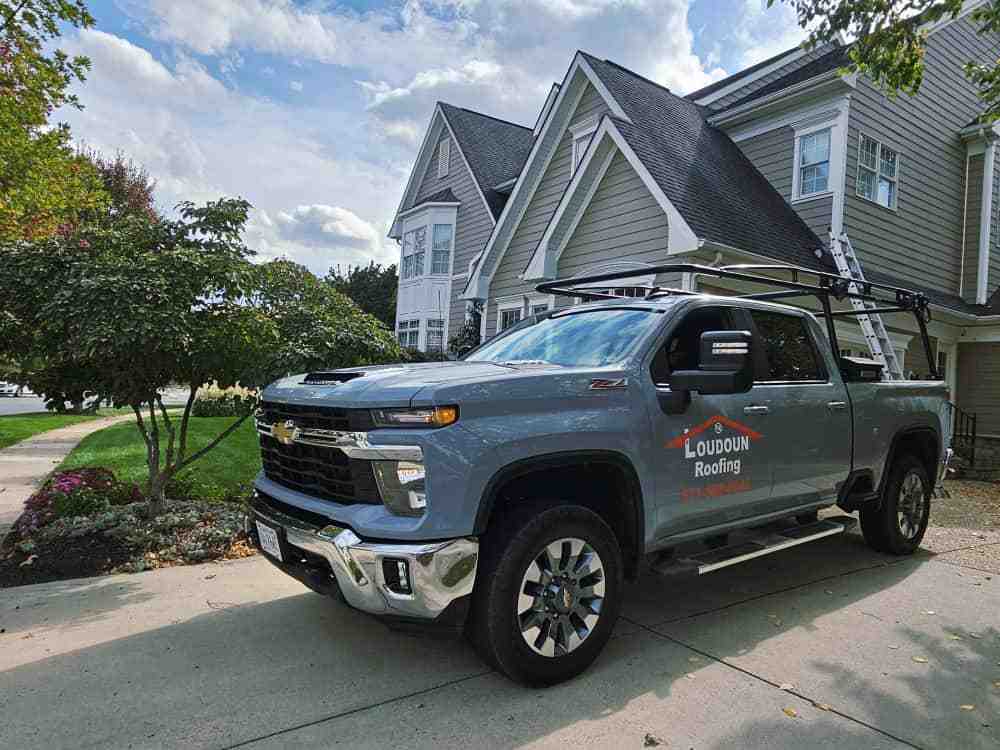When planning a roof replacement or repair, understanding roofing permits and local building codes is essential for every homeowner. Whether you’re upgrading your roof for aesthetics, enhancing protection, or addressing damage from a storm, ensuring your project complies with local laws is critical. Not only does this guarantee the safety and longevity of your roof, but it also helps avoid costly fines or complications in the future. Roofing permits ensure that the work meets the required structural standards and helps maintain the overall safety of your home.
As a trusted roofing contractor in Loudoun County, VA, we help homeowners navigate this process by ensuring compliance with all necessary regulations. Adhering to local building codes isn’t just about following the law; it’s about protecting the integrity of your property and investment. This guide will walk you through the process of obtaining a roofing permit, the importance of adhering to building codes, and how professional roofing contractors can help you every step of the way.
What Are Roofing Permits?
A roofing permit is an official approval granted by your local building department. It’s necessary before starting any major roof construction, replacement, or repair. The purpose of a roofing permit is to ensure the project adheres to local building codes and safety standards, safeguarding your property and its occupants.
Many homeowners are surprised to learn that even seemingly minor roof repairs might require a permit, especially if they affect the structure or integrity of the roof. Projects such as complete roof replacements, adding new layers of roofing, or altering the structure of the roof generally require a permit.
Why Are Roofing Permits Important?
- Legal Compliance: Roofing permits ensure that your project complies with local regulations, preventing fines and the need to redo the work.
- Insurance: Some insurance policies may require you to obtain a permit before they provide coverage for roofing projects, especially for storm damage.
- Property Value: When selling your home, having proper permits ensures that any roof work is legitimate and up to code, potentially increasing your home’s resale value.
- Safety: Permits ensure that your roofing project adheres to safety standards, protecting both the workers and your home from potential hazards.
Understanding Local Building Codes
Building codes are a set of rules and regulations that dictate how construction projects must be carried out. These codes ensure the safety, structural integrity, and energy efficiency of buildings. For roofing projects, building codes cover a variety of aspects, including the materials used, roof pitch, insulation, ventilation, and durability to withstand weather conditions.
Key Codes for Roofing Projects:
- Roof Pitch: Local codes may specify the minimum pitch (slope) for certain types of roofs, especially in areas with heavy snow or rain.
- Materials: Certain roofing materials may be required or restricted based on local climate conditions and fire safety codes.
- Wind Resistance: Roofing materials and roof installation methods must meet wind resistance standards, particularly in areas prone to strong winds.
- Insulation and Ventilation: Proper insulation and ventilation are essential for energy efficiency and moisture control. Building codes often require specific types of insulation and ventilation methods in roofing systems.
How to Apply for a Roofing Permit
The process of obtaining a roofing permit typically involves the following steps:
- Consult a Professional Roofing Contractor: Before applying for a permit, it’s wise to consult a professional roofing contractor. They can determine whether your project requires a permit and help with the application process.
- Submit Your Application: Roofing permit applications are submitted to your local building department. The application usually includes details about the project, such as roofing materials, design, and planned work.
- Pay Fees: There is typically a fee associated with obtaining a roofing permit. The amount can vary depending on the size and complexity of the project.
- Wait for Approval: Once submitted, the building department will review the application to ensure that the project complies with local codes. If everything is in order, the permit is approved.
- Schedule Inspections: After the work is completed, a final inspection is required to ensure that the roofing project complies with safety and quality standards.
How a Roofing Contractor Can Help
A professional roofing contractor plays a key role in ensuring that your roofing project complies with local codes and regulations. Here’s how they can help:
- Assess Permits: Roofing contractors will know exactly which permits are required for your project and can submit the application on your behalf.
- Ensure Code Compliance: Contractors are well-versed in local building codes and can make sure your project adheres to them. This includes choosing the right materials, ensuring proper installation methods, and following safety standards.
- Handle Inspections: A roofing contractor will schedule and coordinate inspections throughout the process, ensuring that everything is up to code.
- Efficient Process: With a contractor managing the permit process, your project will move forward smoothly, avoiding delays due to permit issues.
Frequently Asked Questions About Roofing Permits
- Do I need a permit for roof repairs?
Minor repairs, such as replacing a few shingles, generally don’t require a permit. However, if the work involves structural changes, it’s best to check with a professional contractor. - How long does it take to get a roofing permit?
Permit processing typically takes a few days to a couple of weeks, depending on the complexity of the project and local government timelines. - Can I handle the permit application myself?
While it’s possible to apply for a roofing permit yourself, working with a professional contractor ensures the application is completed accurately and quickly. - What happens if I don’t get a permit for roofing work?
Failure to obtain the necessary permit can lead to fines, potential delays, and issues when selling your home. It could also affect your insurance coverage. - How can Loudoun Roofing help with roofing permits?
As experienced roofing contractors, we can help you navigate the permitting process, ensuring that all necessary approvals are obtained and the work is done to code.
Conclusion
Roofing permits and local building codes are an important part of any roofing project. They help ensure the work is done safely, meets legal requirements, and adds value to your home. Working with a professional contractor, like Loudoun Roofing, simplifies the process, ensuring everything is handled efficiently and in compliance with local laws.
If you’re planning a roofing project, don’t hesitate to contact Loudoun Roofing for expert guidance and assistance with permits and code compliance. Our team will help ensure your roofing project is completed smoothly, safely, and up to code.



